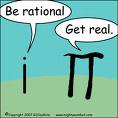 The New Atheists preach that religion is bad and irrational. Salvation is supposed to come through education. But a recent Gallup poll says otherwise. From a Wall Street Journal article:
The New Atheists preach that religion is bad and irrational. Salvation is supposed to come through education. But a recent Gallup poll says otherwise. From a Wall Street Journal article:
Surprisingly, while increased church attendance and membership in a conservative denomination has a powerful negative effect on paranormal beliefs, higher education doesn’t.
How about more liberal verses more conservative Christians? Perhaps the more liberal, more ‘enlightened’ will not fall for such things as Bigfoot? Again:
In fact, the more traditional and evangelical the respondent, the less likely he was to believe in, for instance, the possibility of communicating with people who are dead.
Hum, how about that? Could this mean that evangelicals are not necessarily irrational? Well, I suppose it could be argued that our brand of irrationality denies other forms of irrationality.
One final quote before I make a few comments. And this quote, I believe, stands on it’s own:
But it turns out that [Bill Maher] the late-night comic is no icon of rationality himself. In fact, he is a fervent advocate of pseudoscience. The night before his performance on Conan O’Brien, Mr. Maher told David Letterman — a quintuple bypass survivor — to stop taking the pills that his doctor had prescribed for him. He proudly stated that he didn’t accept Western medicine. On his HBO show in 2005, Mr. Maher said: “I don’t believe in vaccination. . . . Another theory that I think is flawed, that we go by the Louis Pasteur [germ] theory.” He has told CNN’s Larry King that he won’t take aspirin because he believes it is lethal and that he doesn’t even believe the Salk vaccine eradicated polio.
Here’s my reflection on this whole interesting survey. The more conservative, evangelical a person is, the more they are inclined to believe the Bible and to allow scripture to inform their understanding of the natural and supernatural world. The West grew from a pervasive Christian worldview, including Western science and philosophy. The way we define something as ‘rational’ comes from an extension of a Christian understanding of the world. So the more Christian someone is, the more rational they are, not the other way around. To see the world rightly is to see it the way God created it and how He understands it. God’s worldview is what we call ‘reality’. In the West, atheists are Christian atheists. They specifically don’t believe in the Christian God and then by extension the gods of other religions.
The Journal article ends with a great Chesterton quote that I think is fitting:
Anti-religionists such as Mr. Maher bring to mind the assertion of G.K. Chesterton’s Father Brown character that all atheists, secularists, humanists and rationalists are susceptible to superstition: “It’s the first effect of not believing in God that you lose your common sense, and can’t see things as they are.”


Be the first to leave a comment. Don’t be shy.